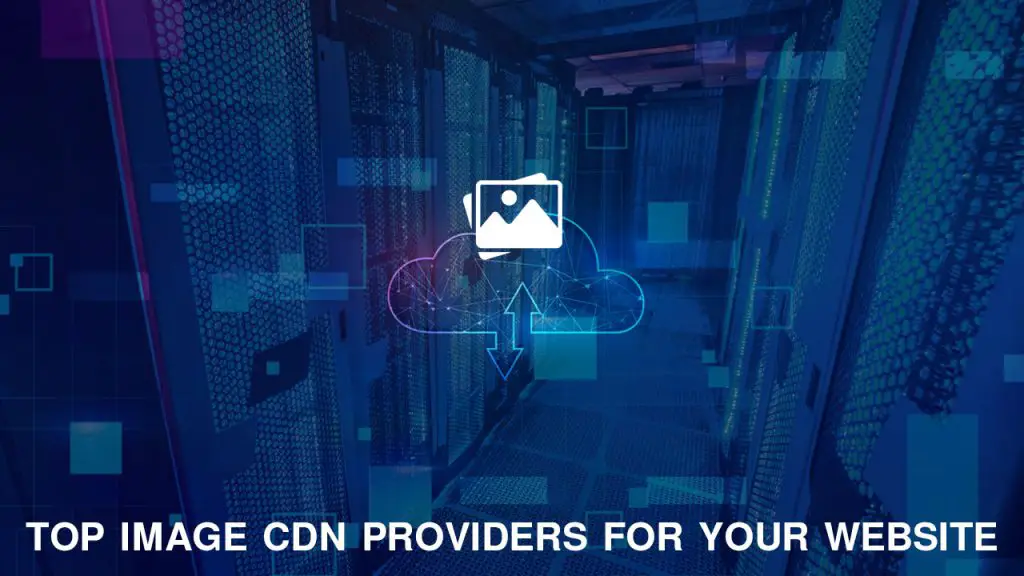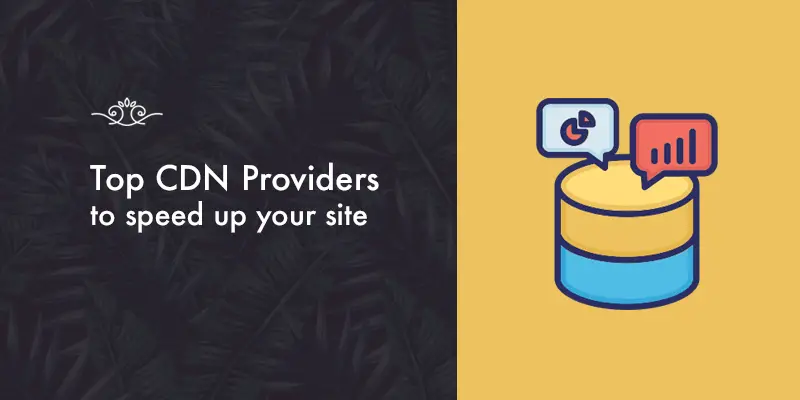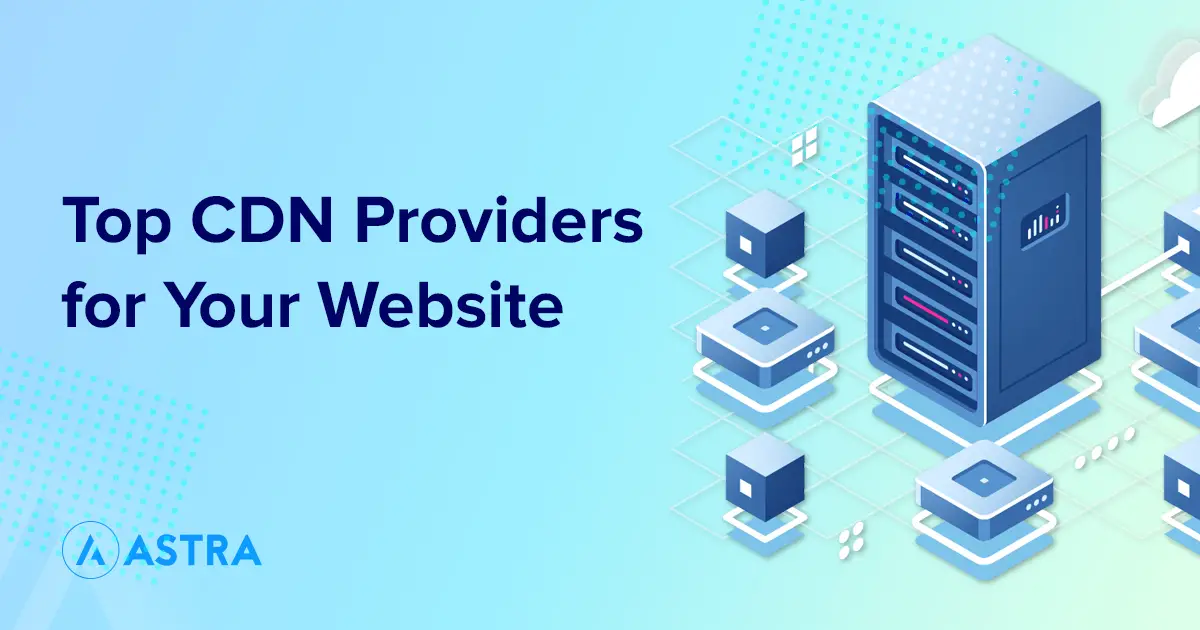Security Features of Top CDN Providers

Content Delivery Networks (CDNs) play a crucial role in enhancing website performance and security. They offer an array of features that protect websites and ensure a seamless user experience. Here are the key security features to consider when choosing a CDN provider:

1. Web Application Firewall (WAF):

- Protects against common web application attacks such as SQL injection, cross-site scripting, and denial of service (DoS) attacks.
- Real-time analysis of incoming traffic identifies malicious requests and blocks them before reaching the origin server.
2. DDoS Mitigation:
- Shields websites from large-scale distributed denial of service (DDoS) attacks.
- Redundant network infrastructure and advanced algorithms absorb and redirect attack traffic, ensuring website availability.
3. SSL/TLS Encryption:
- Encrypts data transmitted between the CDN and users’ devices.
- Prevents eavesdropping and data interception, ensuring privacy and confidentiality.
4. Content Origin Authentication (COA):
- Verifies the integrity of content served by the CDN.
- Ensures that CDN caches only authorized and unmodified content from the origin server, preventing malicious content distribution.
5. Bot Management:
- Detects and blocks malicious bots that can perform automated attacks, scrape content, or collect sensitive information.
- Uses machine learning algorithms to identify and mitigate bot-related threats.
6. Geolocation-Based Security:
- Restricts access to content based on user location.
- Prevents unauthorized access to sensitive information or services from specific geographic regions.
7. Advanced Monitoring and Reporting:
- Provides real-time visibility into website traffic and security events.
- Detailed analytics and reports identify and address potential security breaches or performance issues.
8. Compliance with Security Standards:
- Meets industry-recognized security standards such as ISO 27001, PCI DSS, and SOC 2.
- Ensures compliance with regulatory requirements and provides peace of mind for businesses.
9. Identity and Access Management (IAM):
- Controls access to CDN resources and configuration settings.
- Restricts user permissions and requires multi-factor authentication, preventing unauthorized access.
10. Network Health and Redundancy:
- Utilizes a global network of interconnected data centers and redundant infrastructure.
- Ensures high availability and performance even in the event of a network outage or data center failure.
By selecting a CDN provider that offers these security features, businesses can strengthen their website protection, ensure data integrity, and enhance user confidence.## Understanding The Security Features Of Top CDN Providers
Executive Summary
Content Delivery Networks (CDNs) play a vital role in enhancing website performance and improving user experience. However, their security measures are equally important, especially given the increasing prevalence of cyber threats. This article aims to provide a comprehensive overview of the security features offered by top CDN providers, enabling website owners and administrators to make informed decisions when choosing a CDN service.
Introduction
CDNs distribute website content across geographically dispersed servers, ensuring fast and reliable access to users around the world. While speed and performance are crucial, protecting website data and user privacy is paramount. CDN providers have implemented a range of security measures to ensure the confidentiality, integrity, and availability of website content.
Frequently Asked Questions (FAQs)
-
Q: What are the main security concerns that CDNs address?
A: CDNs protect against various threats, including distributed denial of service (DDoS) attacks, malware, phishing, and data breaches. -
Q: How do CDNs enhance security against DDoS attacks?
A: CDNs employ DDoS mitigation techniques, such as rate limiting, IP blacklisting, and traffic filtering, to prevent malicious traffic from reaching the origin server. -
Q: What measures do CDNs take to protect against malware and phishing?
A: CDNs implement malware and antivirus scanning, URL filtering, and content inspection to detect and block malicious content before it reaches end users.
Top 5 Subtopics
1. DDoS Protection
DDoS attacks overwhelm servers with high volumes of traffic, causing service disruptions. CDNs mitigate DDoS attacks through:
- Rate Limiting: Enforces limits on traffic volume from single sources.
- IP Blacklisting: Blocks IP addresses associated with malicious activity.
- Traffic Filtering: Analyzes traffic patterns to detect and filter out suspicious traffic.
2. Malware and Phishing Protection
Malware and phishing aim to infect devices or steal sensitive information. CDNs protect against these threats by:
- Malware and Antivirus Scanning: Detects and blocks known malware and viruses.
- URL Filtering: Blocks access to malicious or suspicious websites.
- Content Inspection: Analyzes content for malicious code or phishing attempts.
3. SSL/TLS Encryption
Secure Sockets Layer (SSL) and Transport Layer Security (TLS) encrypt data in transit between the CDN and end users. This ensures:
- Data Confidentiality: Prevents eavesdropping and unauthorized access to sensitive data.
- Data Integrity: Protects data from modification during transmission.
- Authentication: Verifies the identity of servers and clients to prevent man-in-the-middle attacks.
4. Web Application Firewall (WAF)
WAFs monitor and filter incoming web traffic, blocking malicious requests. They protect against:
- SQL Injection: Attacks that exploit vulnerabilities in database queries.
- Cross-Site Scripting (XSS): Attacks that inject malicious code into client-side scripts.
- Cross-Site Request Forgery (CSRF): Attacks that trick users into performing unauthorized actions.
5. Monitoring and Alerting
CDNs provide real-time monitoring and alerting systems to detect and respond to security incidents. They offer:
- Security Logs and Analytics: Track security events and provide insights into potential threats.
- Alert Notifications: Send notifications to administrators in case of suspicious activity or security breaches.
- Response Mechanisms: Initiate automated or manual responses to mitigate security incidents.
Conclusion
Top CDN providers offer robust security features to protect websites and users from a wide range of cyber threats. By understanding the capabilities of these features, website owners and administrators can select the CDN service that best meets their security requirements. Implementing these security measures ensures the confidentiality, integrity, and availability of website content, fostering trust and protecting user data.
Keyword Tags
- CDN Security Features
- DDoS Protection
- Malware Protection
- Phishing Protection
- Web Application Firewall
